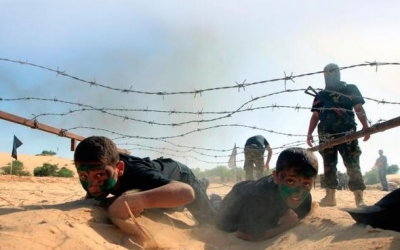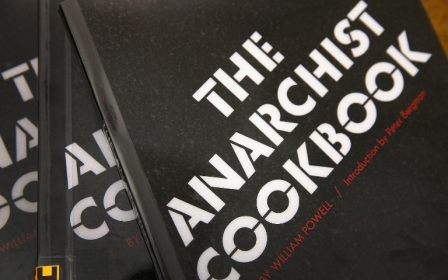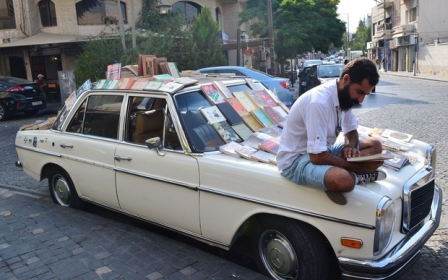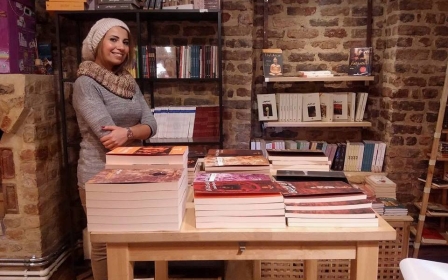Cairo: A tale of two book fairs
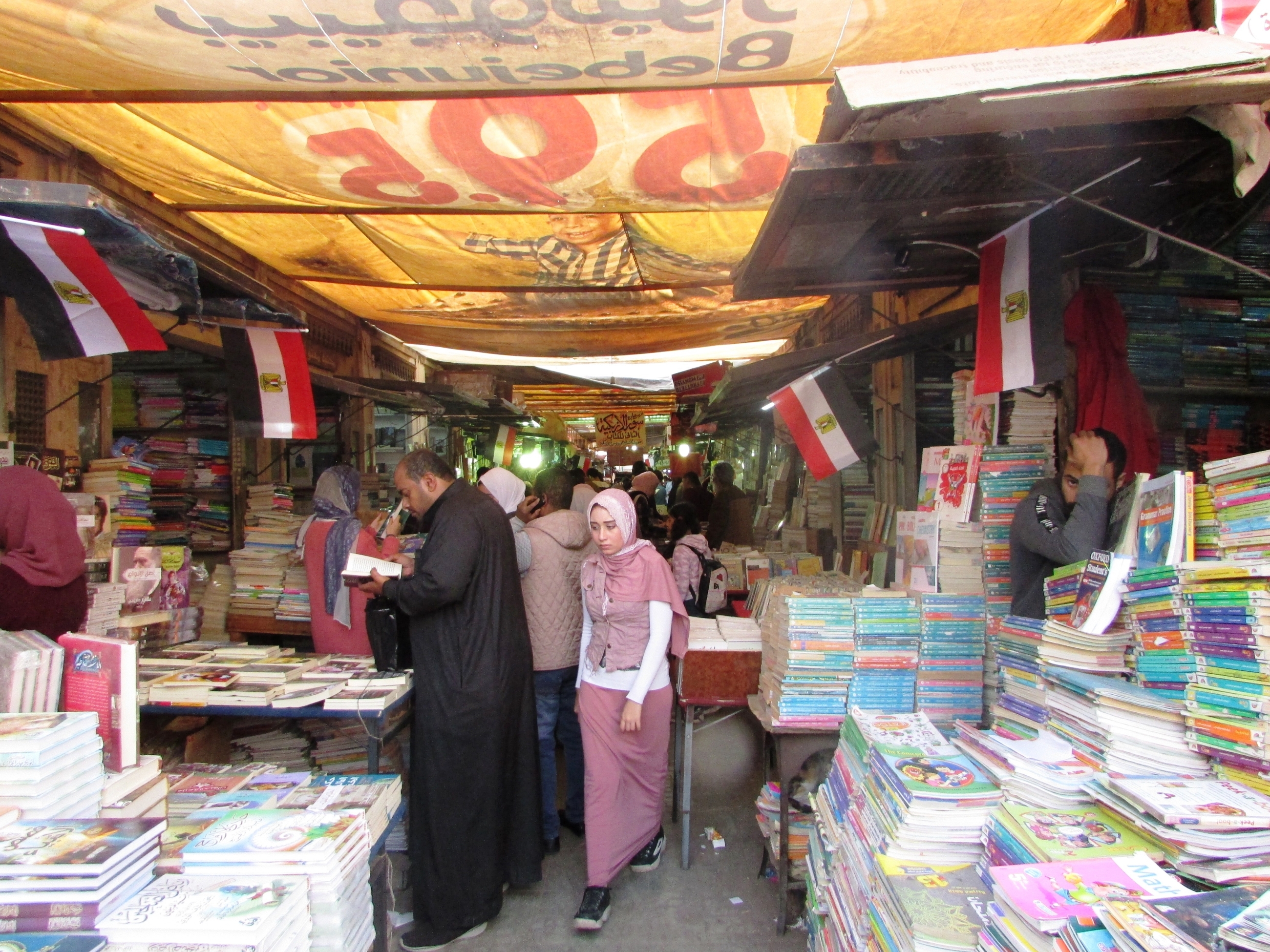
CAIRO - It was a warm, sunny morning when Mohamed, a 39-year-old accountant, decided to go to the golden jubilee of the annual state-run Cairo International Book Fair with his wife and three children.
“It used to take me 40 minutes to go to the fair in Nasr City by taxi from downtown Cairo or 20 minutes with the underground.
"Now I either take overcrowded public transportation, which is very tough for my wife and children, or pay a fortune, as a taxi or an Uber fare to go to the new location is about two hours,” said Mohamed while queuing with his family to enter a hall selling children’s books.
For 30 years, the fair was held at the Cairo International Fairgrounds in eastern Cairo’s Nasr City neighbourhood. An underground metro station is located just outside the former venue which, for years, facilitated a quick and easy means of transportation for visitors to the fair.
This year the fair was moved to the International Exhibition Centre in Cairo’s outskirts, stirring outrage among thousands of book lovers who found the area hard to reach.
New MEE newsletter: Jerusalem Dispatch
Sign up to get the latest insights and analysis on Israel-Palestine, alongside Turkey Unpacked and other MEE newsletters
While most exhibitors preferred the new venue, many visitors still favour the old one.
“We used to spend quality time at the gardens in Nasr City. Food and beverages were available at affordable prices at kiosks serving the visitors. Now the new venue only encompasses expensive restaurants and vendors,” said Ahmed Fahmy, a 19-year old university student.
Some exhibitors, however, beg to differ.
“The sales this year are not different from last year despite the relocation of the fair to a distant area. The event is now more organised, which makes it as prestigious as other international fairs like the Sharjah Book Fair and Abu Dhabi International Book Fair that I took part in before,” said Tamer Abdel-Karim, distribution manager at the Egyptian-Lebanese publishing house Al-Dar Al-Masria Al-Lubnania.
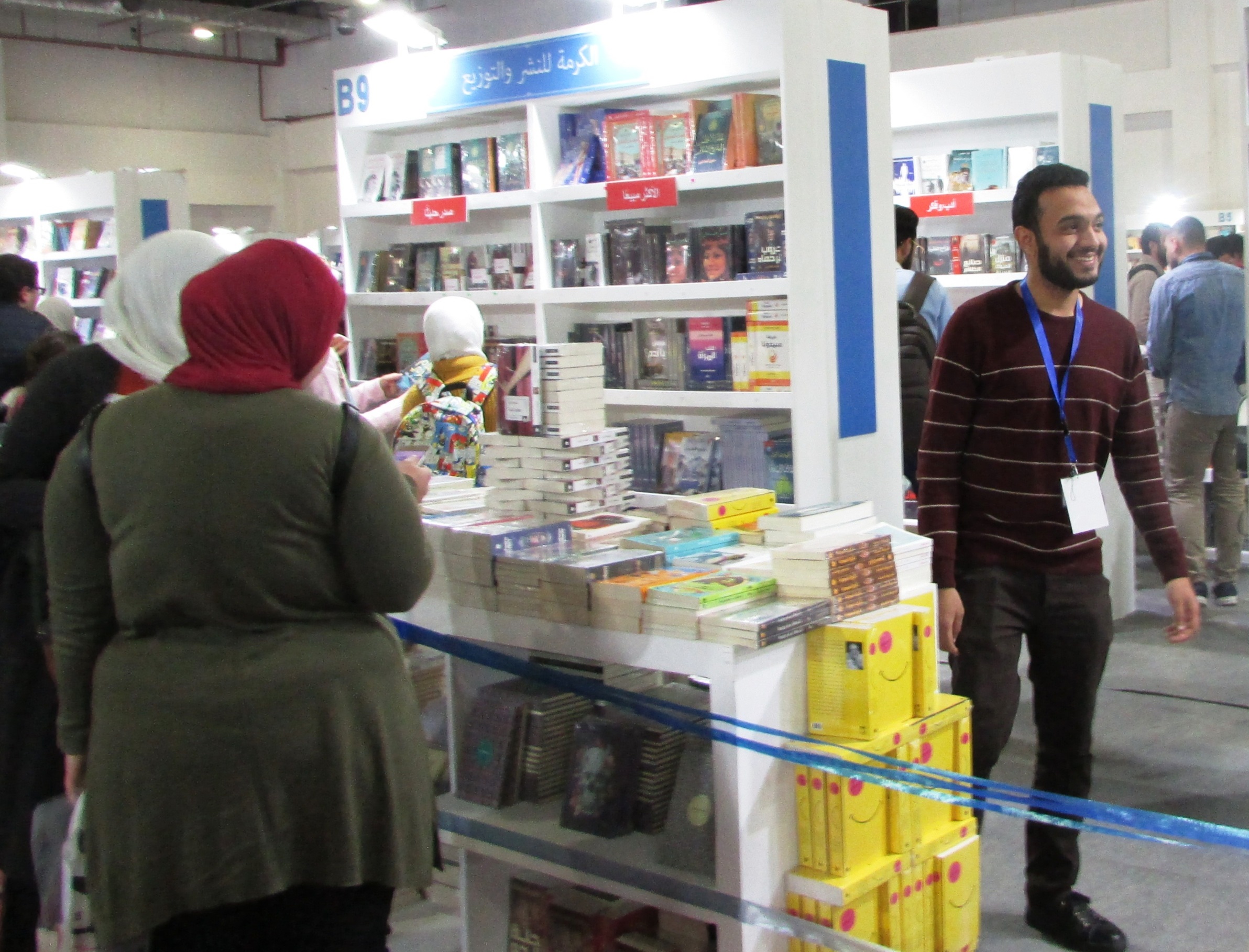
“We used to showcase our publications at the old location in tents that were liable to rain and dust,” he said.
Open until 5 February, about one million and a half visitors have attended the fair since it was inaugurated on 23 January, according to local press.
Showcasing their books at 723 booths distributed over four halls, 62 new publishing houses, out of 579 from 35 countries had stalls at the fair for the first time. In addition to browsing and buying books, participants could take part in seminars, workshops, book discussions, cultural events and book signings.
Current trends
According to one books salesman, who declined to give his name or that of the publishing house he works for, fiction is still the king among the types of books being sold, with classic novels, literary fiction and thrillers the big selling genres at this year's fair.
“It is hard to determine the number of books sold every day, as they vary based on the day of the week," he said.
“But in a nutshell, fiction is the most popular book genre. This year we have five best-sellers that achieved considerable sales,” he said.
“The fair visitors mainly buy novels and classics like the One Thousand and One Nights and books by the late Egyptian intellectuals Ahmed Amin and Mostafa Lotfi al-Manfalouti,” Abdel-Karim explained.
Self-development and children’s books come next on the top sales list.
“Human development books have witnessed a high turnout this year,” publisher Mohamed Mo’ez, owner of Safahat publishing house, explained.
Based on the official website of the book fair, the state-run General Egyptian Book Organisation, an entity that publishes contemporary books and classics, sold publications worth about 928,570 Egyptian pounds (about $52,500) in the first week of the exhibition.
Brotherhood book ban
The book fair has not been without controversy. Two days after the international event was inaugurated, the fair’s follow-up committee confiscated a book written by the late Muslim Brotherhood group founder Hassan al-Banna, which was displayed by the Moroccan publishing house Dar al-Rashad.
Islam Bayoumy, director of exhibitions at the General Egyptian Book Organization, told Egyptian daily independent Al-Masry Al-Youm newspaper that during the inspections of the book fair’s booths, the committee discovered five copies of a book by al-Banna entitled “Hassan al-Banna’s Sayings”.
“The confiscation of the book reflects the lack of freedom of thought and expression in Egypt. Muslim Brotherhood members are now either fugitives living outside the country or are behind bars. What harm would a book by al-Banna cause Egyptian society now?” said a human rights advocate, who declined to be named due to fears of being persecuted by Egyptian authorities.
On 3 July 2013, Abdel-Fattah el-Sisi, now Egypt’s head of state who was the then commander-in-chief of the armed forces, overthrew Mohamed Morsi, the Muslim Brotherhood president of Egypt following mass protests. A bloody crackdown on the group followed.
Five months later, the then interim government of Egypt labelled the Muslim Brotherhood a terrorist organisation.
Parallel fairs
In Al-Ataba, a poverty-stricken neighbourhood on the other side of the city, Soor El-Azbakeya (the Azbakeya wall), a market for used books, awaits visitors just outside the underground metro station.
Known by locals as “the Azbakeya festival”, hundreds of bookworms gather there daily hoping to find affordable old and used books in Arabic and other languages. For the first time in 30 years, the Azbakeya booksellers have been absent from the state-run fair, which upset many in Egypt’s cultural community as well as social media users.
The booksellers collectively decided to boycott the official fair after most of the Azbakeya booksellers were denied permission to attend and prices for the stalls were doubled.
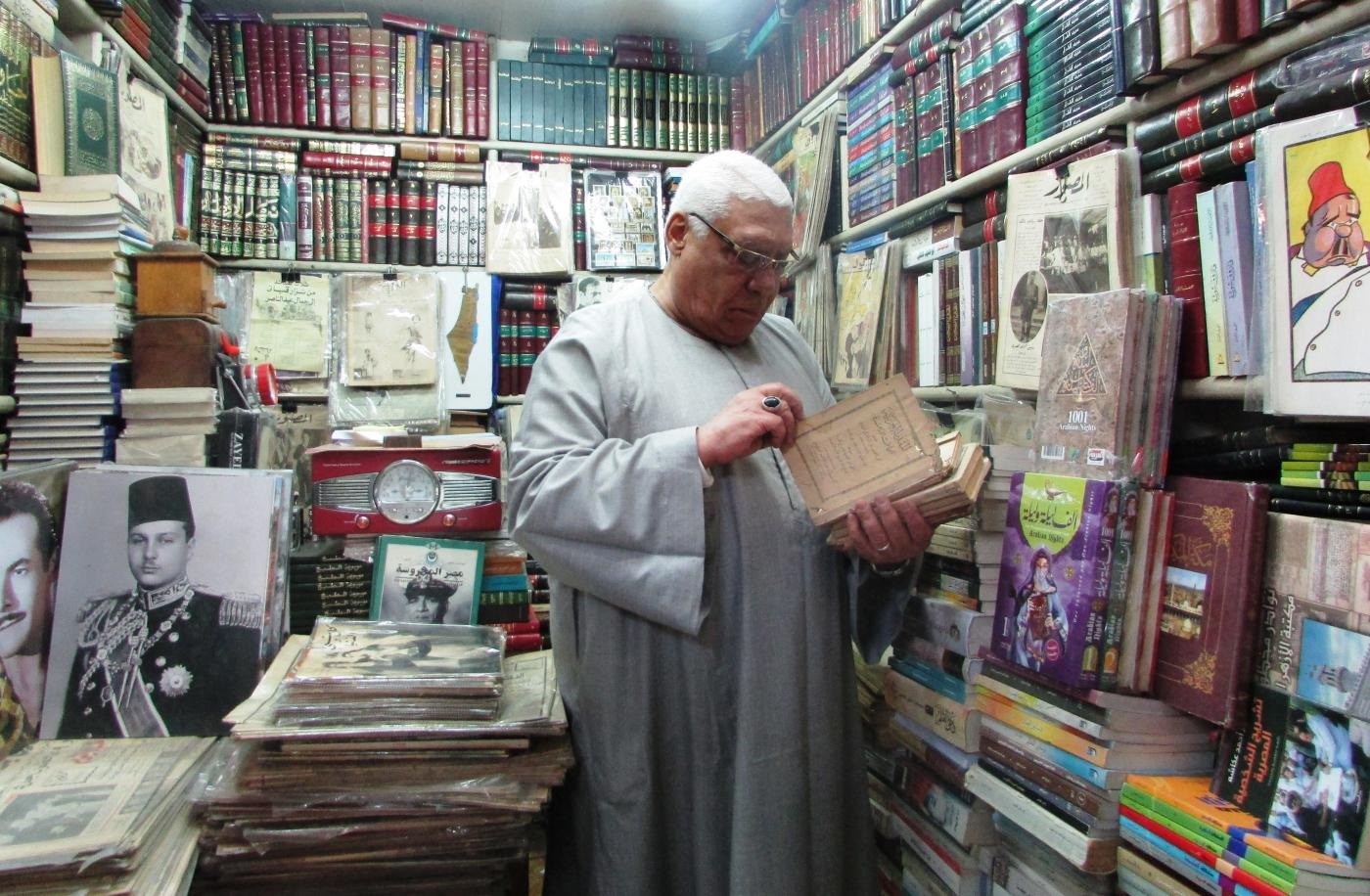
“I used to visit the international book fair every year, especially to drop by the Azbakeya pavilion to buy used books,” said 20-year-old university student Doaa Helmy, as she checked out Arabic novels being sold for 20 Egyptian pounds ($1.13).
'I used to visit the international book fair every year, especially to drop by the Azbakeya pavilion to buy used books'
- Doaa Helmy, university student
Azbakeya booksellers also offer small-sized books on literature and philosophy free of charge alongside all the other books they sell.
“Everybody has the right to learn even for free,” said one seller, passionately.
“Nobody can deny the value of El-Azbakeya market as one of the most important cultural institutions in the country, serving a wide-base of citizens, especially the industrious ones,” said award-winning novelist Sherif Said.
“But after all, the market is available all year and the international book fair is only open for two weeks.”
Only way out
“It is as if the fair administration wanted to push us away by telling us only 33 bookstores were allowed to join the fair out of the 108 Azbakeya bookshops. That’s why all sellers joined forces and boycotted the fair, holding a month-long independent fair instead,” said Heba Karam, an organiser of the Azbakeya festival.
“The exhibition administration further stipulated that each seller pays 1,200 Egyptian pounds ($68) a square metre for every booth, that’s 240 pounds more than the participation fees for publishing houses that sell new books, and earn a lot compared to us, and double last year’s fees,” she added.
In past years, the CIBF used to allocate 1,000 square-metres for the Azbakeya traders, allowing them to display thousands of books.
The Azbakeya book festival has seen a high turnout since it kicked off on 15 January. This has, in a way, compensated sellers for the losses they have experienced due to their lack of participation at CIBF.
“Azbakeya sellers buy thousands of books throughout the year and keep them to exhibit at the fair. When we boycotted the fair, sellers didn’t know what to do with these huge amounts of books. But the festival and the support of social media users saved the situation and we covered about 50 percent of our losses,” Karam said enthusiastically.
Books sold at Azbakeya are offered by sellers at a discount of up to 80 percent, and include a variety of genres including fiction, children’s books, philosophy and religion, engineering, and heritage as well as vintage local and foreign magazines.
“We deducted both the cost of moving the books to the new venue and the space rent from the book prices, offering bookworms a chance to obtain valuable publications at cheap prices,” said 70-year-old Harby Mehaseb, leader of Azbakeya’s booksellers. Mehaseb has been in the book trade for over 55 years and is the oldest trader in the area.
“We were deprived of taking part in the book fair even though we are the ones most entitled to join it, given our status and long history with the book trade in Egypt,” Mehaseb concluded sadly.
Middle East Eye delivers independent and unrivalled coverage and analysis of the Middle East, North Africa and beyond. To learn more about republishing this content and the associated fees, please fill out this form. More about MEE can be found here.


